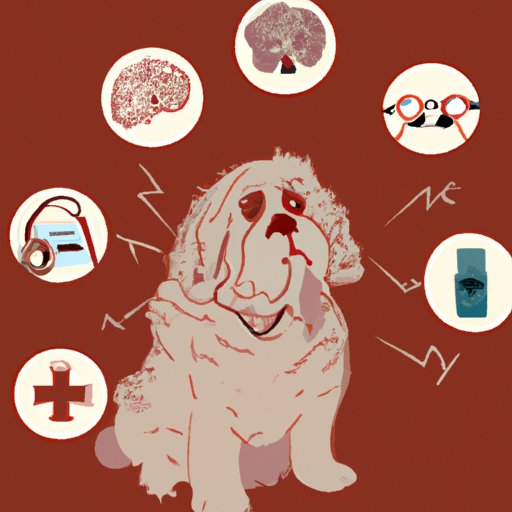Understanding Seizures in Dogs
Seizures in dogs, much like in humans, are the result of abnormal electrical activity in the brain. They can be disturbing to witness, especially when they’re happening to your beloved pet. It’s important to remember, though, that your dog isn’t in pain during a seizure. The primary concern is making sure they don’t hurt themselves by falling or knocking into things.
In general, seizures can be caused by a wide range of conditions, including:
- Genetic predispositions
- Exposure to toxins
- Infectious diseases
- Metabolic issues
- Trauma
- Tumors
However, the reasons for seizures in older dogs are somewhat different and often more concerning.
Common Causes of Seizures in Older Dogs
In younger dogs, seizures are often idiopathic, meaning they have no identifiable cause. However, in older dogs, seizures are typically symptomatic of an underlying health problem. Here are some of the most common:
- Brain Tumors: Older dogs are more susceptible to brain tumors, which can cause seizures. These are often accompanied by other neurological symptoms like behavior changes or loss of coordination.
- Kidney or Liver Disease: If your dog’s kidneys or liver aren’t working properly, toxins can build up in their bloodstream and trigger seizures.
- Stroke: Just like in humans, dogs can have strokes. If your dog has a seizure that’s followed by symptoms like confusion or loss of coordination, they may have had a stroke.
- Low Blood Sugar: Hypoglycemia, or low blood sugar, can cause seizures in dogs of all ages. But in older dogs, it’s often due to a tumor in the pancreas.
Diagnosing the Cause of Seizures in Your Dog
Your vet will need to perform a series of tests to determine the cause of your dog’s seizures. These tests might include:
- Blood tests
- Urinalysis
- MRI or CT scan
- Spinal tap
This table summarizes the tests and their purpose:
| Test | Purpose |
|---|---|
| Blood tests | Check for metabolic issues, infections, or toxins |
| Urinalysis | Check for kidney or bladder issues |
| MRI or CT scan | Look for tumors or other abnormalities in the brain |
| Spinal tap | Check for infections or inflammation in the nervous system |
Treating Seizures in Older Dogs
The treatment for your dog’s seizures will depend on their cause. If your dog has a brain tumor, for instance, they might need surgery, radiation, or chemotherapy. If their seizures are due to a metabolic issue, on the other hand, they might need medication and dietary changes.
Remember, as a caregiver, it’s not just about treating the seizures, it’s about ensuring they have the best quality of life possible.
Frequently Asked Questions
Q: Are seizures painful for dogs?
A: No, seizures aren’t painful for dogs. However, they might feel confused or scared during a seizure.
Q: How can I prevent my dog from injuring themselves during a seizure?
A: Keep them away from stairs, furniture, or anything else they might hurt themselves on. Also, don’t try to restrain them or put anything in their mouth.
Q: What should I do if my dog has a seizure?
A: Stay calm and keep your dog safe until the seizure ends. Then, contact your vet immediately.
Remember, seizures in older dogs are usually a sign of something serious. It’s crucial to get your dog to the vet as soon as possible if they have a seizure. This could literally be a life-saving action.



